Page path:
- ArcTrain
- PhD students 1st cohort
PhD students 1st cohort
Martin Bartels
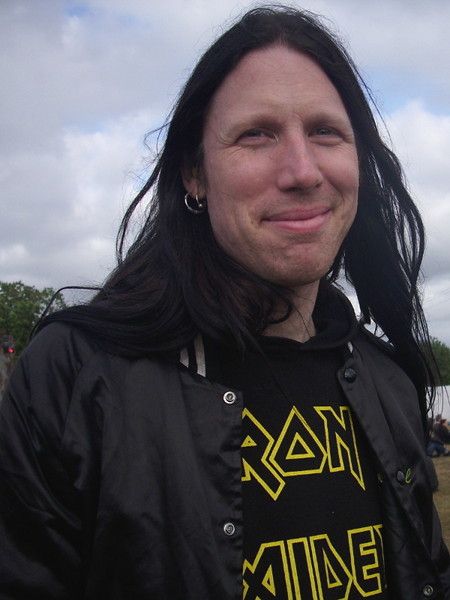
| Institution : | University of Bremen |
| Project : | HB-8 Linking the Late Holocene variability of Svalbard glaciers and ice caps to oceanic heat advection |
Hello, I´m Martin and I studied geoscience at the university of Hamburg. For my master thesis I reconstructed the ecological and paleoceanographic conditions in the Gulf of Genua during the early Holocene based on foraminiferal analyses. I still live in Hamburg and for my current project I will once again study the foraminifera on the shelf of northern Svalbard to investigate the influence of Atlantic Water. I'm very glad to be part of the ArcTrain project, because it has been my dream for a long time to become a polar researcher, hence it was one of my main motivations to study geosciences.
Tilia Breckenfelder
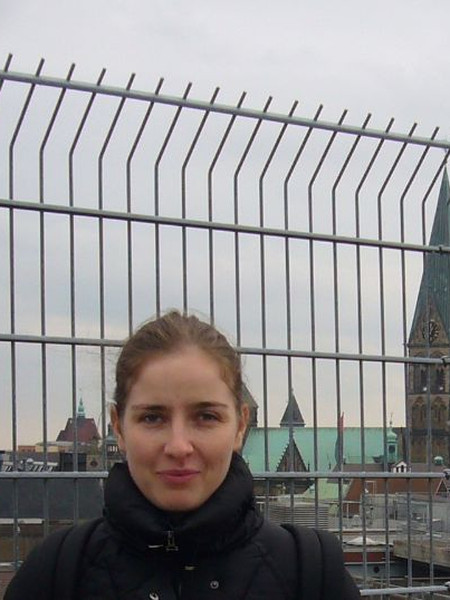
| Institution : | University of Bremen |
| Project : | HB-5 Lateral exchange of heat and freshwater between the western boundary and the North Atlantic Current |
I studied physics at the Free University of Berlin. For my diploma thesis I conducted research at IMAU of Utrecht University, Netherlands where I investigated the temporal and spatial variability of geostrophic currents within the Mozambique Channel. My PhD project within ArcTrain gives me the opportunity to work in an international, interdisciplinary environment, with exciting field trips, workshops and research cruises, with hand-on and computational works in a fascinating and climate relevant topic – the North Atlantic Ocean.
Rebecca Jackson
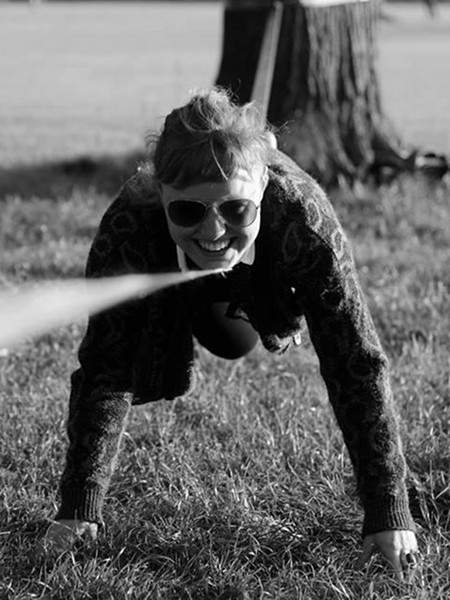
| Institution : | University of Bremen |
| Project : | HB-9 The interplay between ocean circulation and Greenland Ice Sheet in the Baffin Bay since the last ice age |
Orginally from England, I started my studies at Lancaster University, where I became interested in paleoclimate and in particular how this is recorded in marine environments. After finishing my Bachelors, I worked for a couple of years before deciding I wanted to carry on in research. I pursued a Masters by Research at the University of Edinburgh, utilising oxygen isotope analysis to determine monsoonal variation over the Arabian Sea. I have always had a fascination with paleoclimate in the polar regions and as such I am really excited to work as part of the ArcTrain program on sediment samples from the Baffin Bay.
Valeriia Kirillova
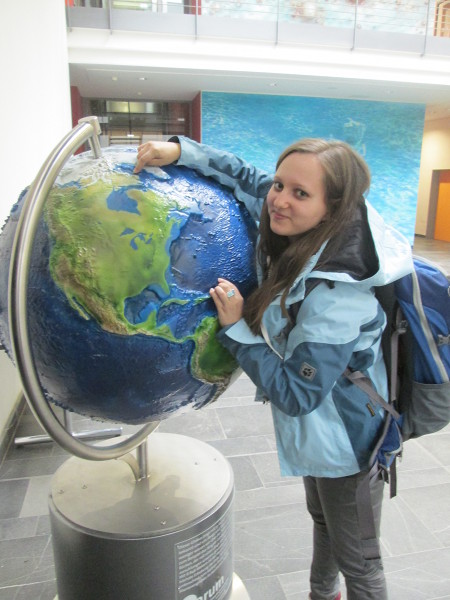
| Institution : | University of Bremen |
| Project : | HB-12 Tracing meltwater plumes and routing into the ocean during late Pleistocene climate transition |
After finishing my Bachelors (in St. Petersburg, Russia) in chemistry I decided to try a new field for my master, that’s how I found myself in POMOR program for polar and marine sciences. The third semester I spent in Kiel University studying Marine Geosciences and was fascinated by the Isotopic Geochemistry and Paleoceanography. Therefore I started to work in GEOMAR Helmholtz Center for Ocean Research Kiel on my master thesis which was connected to the closure timing of Panama Seaway. I applied radiogenic isotopes analysis (Nd, Sr, Pb) on the ICP-MS and basically the same method I will use now in my Arc Train Project. I’m happy to be a part of the program. I feel it will be an amazing adventure during which we all will get a lot of experience, will meet new people and will have a good start in the scientific world.
Andrea Klus
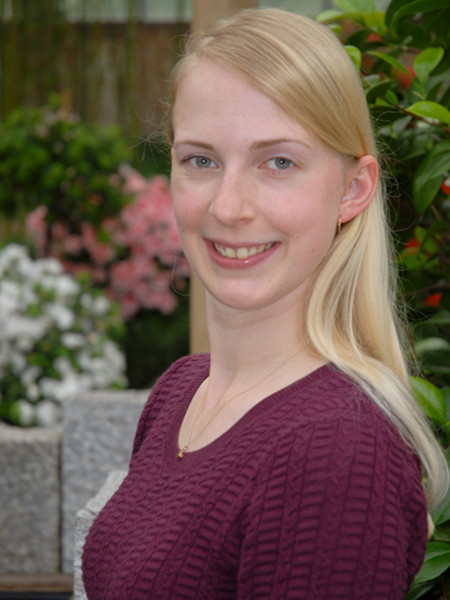
| Institution : | University of Bremen |
| Project : | HB-4 Millennial-scale Holocene climate variability in the North Atlantic: Mode transitions in climate models |
Hello! I'm Andrea and I studied Industrial Mathematics in Bremen, because I always liked working in an interdisciplinary field. During my studies I gained a great interest in weather and climate and chose environmental physics as my applied subject. Additionally, I did an internship at the Alfred-Wegener-Institute in Bremerhaven about mapping sea ice. My diploma thesis was about the mathematical background of weather forecast. During ArcTrain I will deal with Holocene climate variability in the North Atlantic in climate models and early-warning signals for North Atlantic climate transitions. I am very glad to be a part of the ArcTrain project, so I can learn a lot about current climate research and work with a lot of interesting people from different areas.
Henriette Kolling
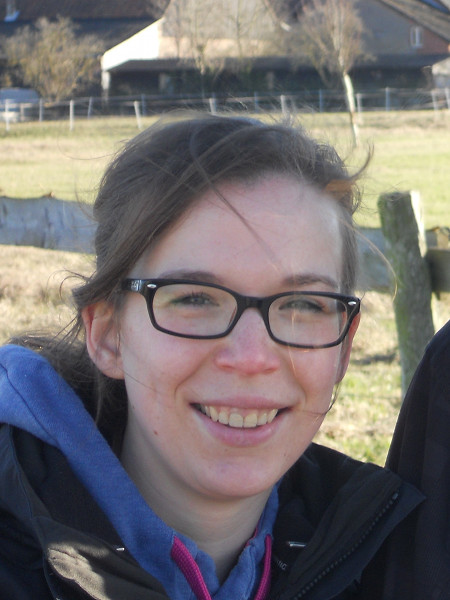
| Institution : | AWI |
| Project : | HB-3 Decadal to centennial variability of (sub-) Arctic sea-ice distribution and its paleoenvironmental significance |
During my studies of Geology and Marine Geoscience at Kiel University I developed a strong interest in paleoceanography and the reconstruction of past climates. As a student assistant I got the opportunity to join a scientific cruise to the Laptev Sea, which got me „hooked“ to the Arctic.
In my Master Thesis I focused on the reconstruction of sea surface temperatures and on oceanographic and sedimentological changes over the last 14.000 years in the eastern Norwegian Sea (Voring Plateau). I enjoyed scientific work that much that I decided to continue with science. In ArcTrain I will reconstruct sea ice cover and primary production around Greenland with geochemical methods. This project gives me the chance to work with interesting people I hope to learn a lot from.
In my Master Thesis I focused on the reconstruction of sea surface temperatures and on oceanographic and sedimentological changes over the last 14.000 years in the eastern Norwegian Sea (Voring Plateau). I enjoyed scientific work that much that I decided to continue with science. In ArcTrain I will reconstruct sea ice cover and primary production around Greenland with geochemical methods. This project gives me the chance to work with interesting people I hope to learn a lot from.
Annegret Krandick
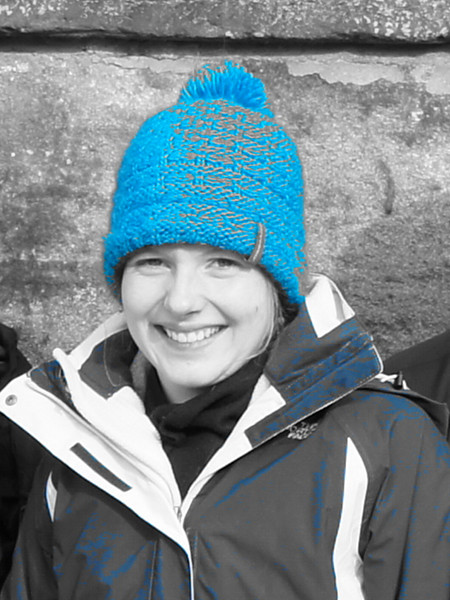
| Institution : | University of Bremen |
| Project : | HB-11 Sensitivity of open-ocean convection in the subarctic North Atlantic Ocean to meltwater run-off from Northern Hemisphere ice sheets |
I am Annegret and finished the Master program "Marine Geosciences" at the Faculty of Geosciences at the University of Bremen with my master thesis "Incorporation and Simulation of Stable Water Isotopes in the Ocean Circulation Model MITgcm". In my PhD project I will also deal with the MITgcm to investigate the sensitivity of open ocean convection to ice sheet melting. I am very interested in research of the polar regions and it is nice to be part of an international team to gain more insights into and an advanced understanding of the complex processes of atmosphere-ocean-sea ice interaction in the Arctic region due to climate change and its global impact. The international training program ArcTrain offers many opportunities from improving scientific skills to building up international contacts. I am very glad to be part of it.
Kerstin Kretschmer
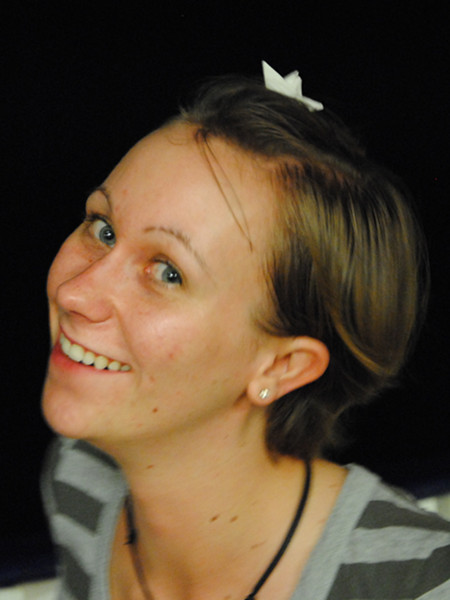
| Institution : | University of Bremen |
| Project : | HB-10 Modeling the effect of meltwater on the habitat of Arctic planktonic foraminifera |
Hi! Before joining ArcTrain I studied Physical Oceanography and Meteorology at the University of Kiel. During my Master's thesis I estimated the global methane hydrate inventory for present-day climate conditions by using model data and by applying a transfer function. In addition, I analyzed how much methane gas would potentially be released from destabilizing methane hydrates within the next 100 to 500 years due to increasing bottom water temperatures. As I love working in an interdisciplinary research group I am really happy to be part of the ArcTrain project. This project gives me the opportunity to learn more about Earth's climate from different kinds of perspectives.
Vasco Müller
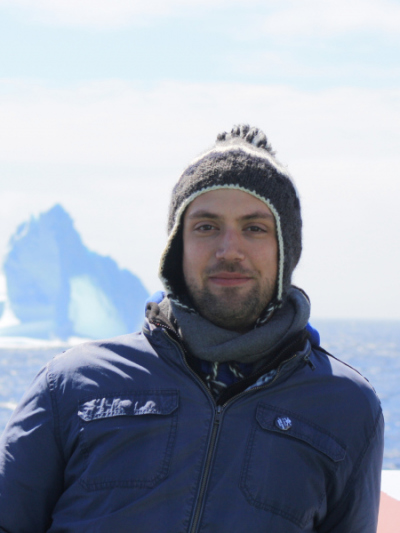
| Institution : | University of Bremen |
| Project : | HB-7 Hot spots of horizontal mixing and cross-stream barriers in the subpolar North Atlantic and their impact on the horizontal distribution of heat and the formation of mode waters |
I am happy to be part of ArcTrain because it gives me the opportunity to
work with a multinational group and exchange ideas with people from
various areas of expertise. Before joining this project I studied
physical oceanography at the University of Hamburg. For my master's
thesis I analyzed initialized model predictions of the Atlantic
meridional overturning circulation at 26.5°N and compared them to
observational data from the RAPID/MOCHA array. For my ArcTrain project I
will move from the subtropical to the subpolar Atlantic and focus on how
horizontal mixing and cross-stream barriers effect the distribution of heat.
work with a multinational group and exchange ideas with people from
various areas of expertise. Before joining this project I studied
physical oceanography at the University of Hamburg. For my master's
thesis I analyzed initialized model predictions of the Atlantic
meridional overturning circulation at 26.5°N and compared them to
observational data from the RAPID/MOCHA array. For my ArcTrain project I
will move from the subtropical to the subpolar Atlantic and focus on how
horizontal mixing and cross-stream barriers effect the distribution of heat.
Raul Scarlat
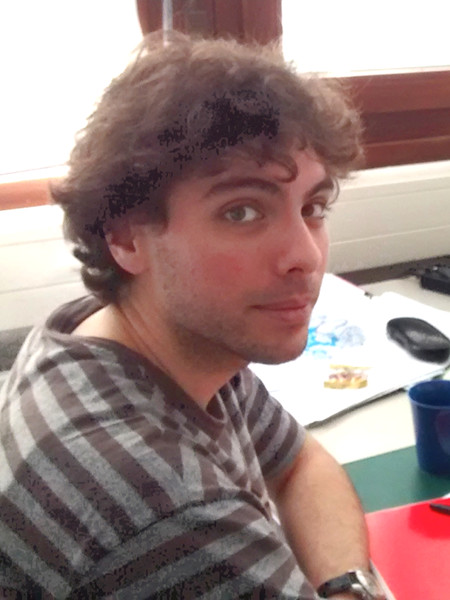
| Institution : | University of Bremen |
| Project : | HB-1 Integrated retrieval of sea ice types and sea ice concentration in the Arctic |
Hello ! Coming from an engineering background, I started my master project on the topic of atmospheric water vapor retrieval in the Arctic using microwave remote sensing. Through this work I understood the importance of accurate sea ice information required for atmospheric sounding. After this, I tried to improve on the satellite sea ice concentration retrieval only to hit on the fact that more accurate knowledge about the state of the atmosphere is required to improve the quality of our surface information. After all of this, I am happy to have joined ArcTrain so that I can work on a way of solving this dilema. Through simultaneous retrieval of both atmoshperic and sea ice parameters using a single instrument I hope to correctly account for the inherent interconections that are part of the Arctic environment.
Mischa Ungermann
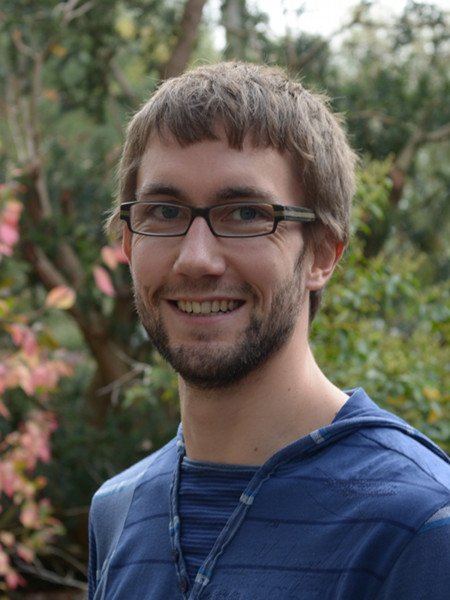
| Institution : | AWI |
| Project : | HB-2 Constraining sea ice models with observations and data assimilation methods: effects of rheology, resolution, and parameterizations |
Coming from the beautiful Linsengericht in Hesse I studied Industrial Mathematics in Bremen. While I learned much about the mathematical and numerical difficulties arising in the modelling of engineering problems, the most interesting applications for my knowledge were presented in lectures on environmental physics. So the opportunity presenting itself with this ArcTrain project was just amazing: Not only a fascinating task of improving the current sea ice models but also a great framework of interdisciplinary as well as international exchange, a broad view on current topics of climate research and actual polar expeditions into the Arctic!
Georg Sebastian Voelker
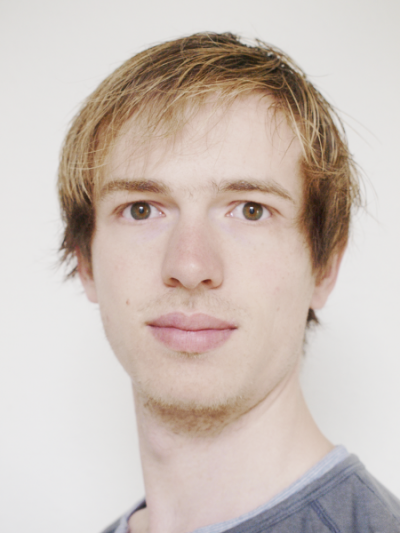
| Institution : | University of Bremen |
| Project : | HB-6 Internal Wave Field - Energy Flux Considerations |
I am with ArcTrain because it offers me the framework of a not only
highly interdisciplinary but also internationally connected scientific
community. Field courses covering a vast amount of techniques and
research areas as well as a subsidised research placement with our
Canadian partners are most valuable to my studies, my future career and
my personal experiences and development.
highly interdisciplinary but also internationally connected scientific
community. Field courses covering a vast amount of techniques and
research areas as well as a subsidised research placement with our
Canadian partners are most valuable to my studies, my future career and
my personal experiences and development.


